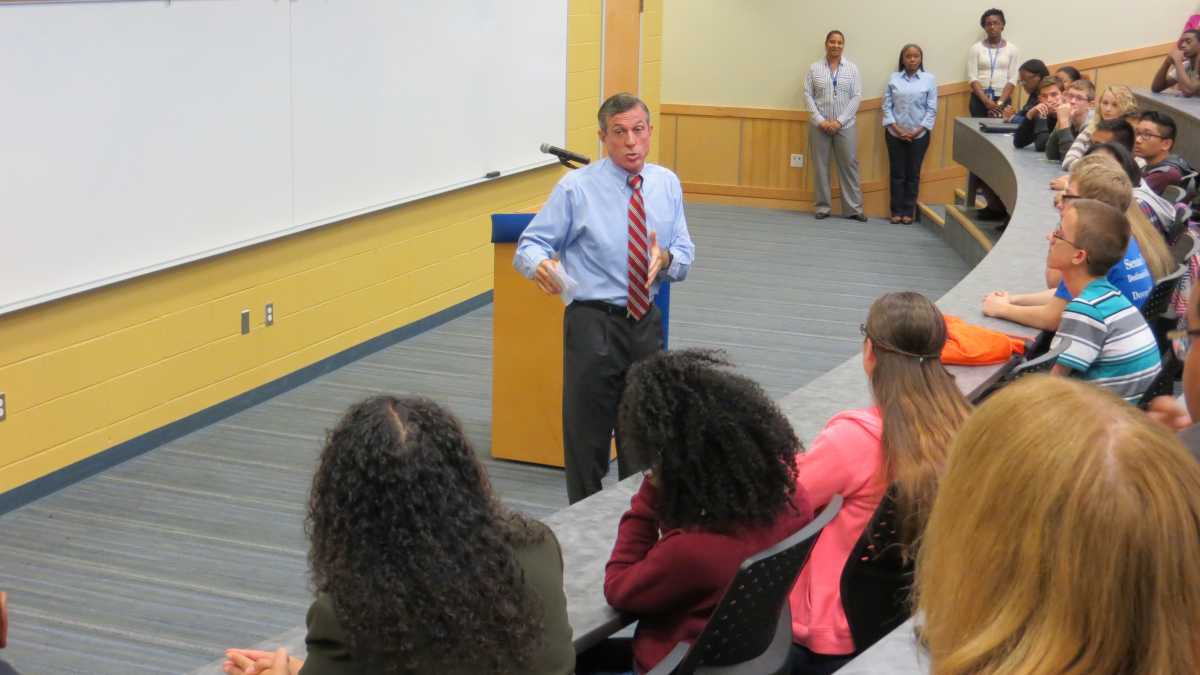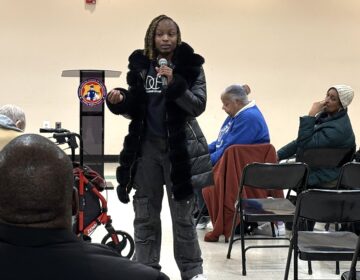Gov. Carney opens school bidding for smaller ‘opportunity grants’

Gov. John Carney's administration and state lawmakers have allocated a total of $1 million statewide in "opportunity grants" in the upcoming school year to help disadvantaged students. (File/WHYY)
Delaware is now accepting bids by schools to receive part of a $1 million fund to help disadvantaged students. A Wilmington group wanted $5 million just for city schools.
Gov. John Carney denied a request this spring by the Wilmington Education Improvement Committee to allocate $5 million next to year to low-performing, high-poverty schools.
Instead, citing budget woes, the new governor proposed far less money for disadvantaged students — $1 million statewide in so-called “opportunity grants” — and the General Assembly signed off.
Tuesday, Carney’s office announced that schools can now apply for $1 million pot of cash to help poor students, those chronically exposed to stress and trauma and those learning English.
Up to 10 schools throughout Delaware will receive the grants for the 2017-18 school year. The maximum award is $350,000 – with the total statewide capped at $1 million.
“We have students in Wilmington and across our state who are affected by significant amounts of trauma and stress in their lives, and we have to do more to support them, help them thrive in school, and prepare them for long-term success,” Carney said in a news release.
“That’s what this new program is about – providing effective support for Delaware students who need it most. These grants provide additional flexibility for schools serving disadvantaged students, with the expectation that results and successful practices will be shared across schools serving a similar population. Thank you to members of the General Assembly for helping us create this program, and for their leadership on this issue.”
Tony Allen, chairman of the Wilmington school improvement panel known as WEIC, called Carney’s initiative “an important and first foray into more substantive, statewide funding equity reform for the future. The commission will be monitoring its impact closely.”
Allen added that “the gaps in equitable funding in the state of Delaware could not be clearer. Until those gaps are closed, we are a long way away from equity, particularly when 50 percent of Delaware public school students are eligible for free and reduced lunch” and an increasing number — 9,800 of 137,000 (7.2 percent) — are learning English.
Mike Matthews, president of the Delaware State Education Association, said his group doesn’t support “competitive grants” but applauded Carney’s “focus on education in our neediest schools.”
Matthews, a grade school teacher who once worked at struggling Warner Elementary in Wilmington, added: “The challenges of low-income students and English language learners, as well as those impacted by trauma, are far greater and deeper than other students and they demand more systemic fixes and a more reliable and sustainable funding stream. Revenue is what’s needed. We can’t continue to cut education budgets and think we’ll be able to adequately address the issues mentioned above.”
Carney and lawmakers cut $26 million from K-12 public schools in the budget that passed this month, forcing schools to lay off teachers and cut programs and services. The state spends about $1.2 billion annually on K-12 education.
Despite the cuts and Carney’s refusal to provide $5 million more for Wilmington schools, the governor said has said he is committed to helping struggling schools in Delaware’s largest city and across the state. Three years ago Gov. Jack Markell’s administration provided $6 million to six Wilmington “priority” schools– with a mandate to improve or face possible closure. All six remain open and will continue receiving extra funding in the upcoming school year.
Carney also launched the Office of Improvement and Innovation in the Department of Education this month, hiring longtime Wilmington educator Dorrell Green to offer special support to neediest schools in Delaware, with a focus on Wilmington.
Susan Bunting, Delaware’s education secretary, will meet with superintendents next week to discuss the grant process, but stressed that the awards are for individual schools – not districtwide initiatives.
“We know those educators who work most closely with our children know best what supports are needed for their children and community,” Bunting said.
WHYY is your source for fact-based, in-depth journalism and information. As a nonprofit organization, we rely on financial support from readers like you. Please give today.




